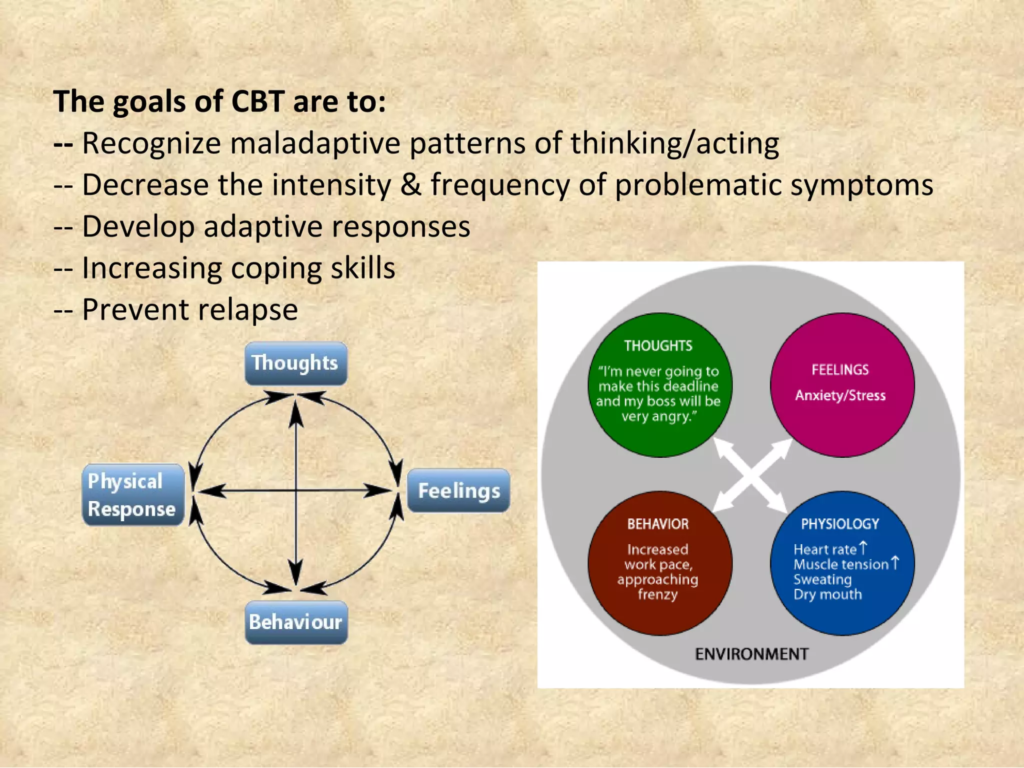As a social worker, you’re no stranger to the complexities of human behavior. You’re on the front lines every day, providing support, resources, and guidance to individuals navigating challenges ranging from mental health issues like eating disorders to difficult life transitions. But even with all the tools and skills you’ve acquired, there’s always room to grow and refine your practice.
One way to do that is by deepening your understanding and application of Cognitive Behavioral Therapy (CBT). CBT certification isn’t just a feather in your cap; it’s a powerful way to enhance your effectiveness as a social worker and to make a tangible difference in the lives of those you serve.
Why CBT Certification?
CBT has long been recognized as one of the most effective forms of psychotherapy, especially for treating anxiety, depression, PTSD, and a host of other mental health issues. At its core, CBT is about helping individuals identify and change distorted thought patterns that lead to unhelpful behaviors and emotions. By becoming certified in CBT, you equip yourself with a structured, evidence-based approach that can be adapted to a wide variety of client needs.
For social workers, the value of CBT certification goes beyond the therapy room. It’s about enhancing your problem-solving toolkit and ensuring that you’re providing the most effective interventions. Whether you’re working in schools, hospitals, private practice, or community agencies, the principles of CBT can be applied to nearly every scenario. It offers a practical approach to helping clients develop coping strategies, build resilience, and make lasting changes in their lives.

The Real-World Benefits of CBT Certification
Let’s talk about how CBT certification can make a concrete impact on your daily work. Consider a social worker who’s spent years working with at-risk youth. This population often struggles with issues like low self-esteem, substance abuse, and unstable family environments. Traditional support methods can sometimes feel like putting a band-aid on a deeper wound.
However, with CBT, you’re not just addressing the symptoms but getting to the root of the problem by helping young clients challenge negative thinking patterns and replace them with more constructive ones.
Imagine the satisfaction of seeing a client who once felt hopeless about their future start to make positive changes, such as attending school regularly or engaging in healthier relationships, because they’ve learned how to control their negative thoughts. That’s the kind of transformation CBT can facilitate.
Another example is in the realm of family social work. Families in crisis often need more than just resources and referrals; they need someone who can help them break out of destructive cycles of behavior. As a social worker, you can help family members identify dysfunctional communication patterns and replace them with healthier ones by using CBT techniques.
Additionally, it empowers individuals within the family to approach conflicts differently.
Enhancing Your Professional Credibility
In a field where practical experience is highly valued, it’s easy to overlook the importance of continued education. However, the reality is that the mental health landscape is constantly evolving, and what worked a decade ago may not be as effective today. Your CBT certification won’t just keep you current; it’ll position you as an industry leader.
Let’s say you’re a social worker looking to transition into a supervisory or training role. Having CBT certification on your resume can be a significant differentiator. It signals to employers and colleagues that you’re committed to providing the highest standard of care, and that you have a specialized skill set that can be passed on to others in your team.
Moreover, CBT certification is often a requirement or strong recommendation for roles in specialized areas such as mental health counseling, school social work, or trauma-focused care. Even if it’s not explicitly required, having this certification can give you a competitive edge when applying for jobs, negotiating salaries, or seeking promotions.
The Certification Process
Let’s break down what’s involved in getting certified. The process typically begins with completing a certain number of hours of CBT-specific training. This can be done through workshops, online courses, or formal education programs. Many social workers find that online courses are particularly convenient, allowing them to fit training into their busy schedules without compromising their current responsibilities.
After completing the required training, the next step is to put into practice what you’ve learned through supervision. This is where you’ll start to see the real-world application of CBT techniques with your clients. Supervision is a key part of the certification process, as it ensures that you’re using CBT methods correctly and effectively. During this period, you’ll receive feedback and guidance from an experienced CBT practitioner, which is invaluable for honing your skills.
Finally, you’ll need to pass a certification exam. This typically involves a combination of multiple-choice questions and case-based scenarios, designed to test your knowledge and application of CBT principles. While the exam can be challenging, it’s also an opportunity to solidify your understanding of CBT and ensure you’re fully prepared to incorporate it into your practice.
Expand Your CBT Horizon Through Online CEUs
Feeling overwhelmed with licensure requirements? Worry no more. Online CE Credits offers digestible, hassle-free professional development courses 24/7. No due dates. No deadlines. Earn over 20 credits in just 20 days by enrolling in the accredited programs below:
- Schema-Focused CBT: Rooting Out Resistant Behavior Patterns
- Anxiety’s Kryptonite: Help Clients Calm With Solution-Focused Therapy
- Treating Insomnia Using Cognitive Behavioral Therapy (CBTi) Step-by-Step
- NDIT Module 1 Deep Dive: Skills to Activate Mirror Neurons and Build the Alliance
- NDIT Module 2 Deep Dive: Reconnecting After Chronic Dissociation and Restoring “Felt Sense
- Solution-Focused Therapy Skills for Depression and Other Mood Disorders
Incorporating CBT into Your Social Work Practice
Once you’re certified, the real work begins—integrating CBT into your daily practice. This might seem daunting at first, especially if you’re already juggling a heavy caseload, but the beauty of CBT is its flexibility. It can be adapted to fit various settings and client needs.
Start by introducing CBT concepts in your initial assessments. For example, when meeting with a new client, consider using a thought record to help them identify and analyze their automatic thoughts. This can give you valuable insights into their cognitive patterns and provide a foundation for your work together.
In group settings, CBT techniques like role-playing or group discussions about common cognitive distortions can be particularly effective. These exercises not only help clients understand their own thought patterns but also foster a sense of community as group members realize they’re not alone in their struggles.
For clients who are dealing with long-term issues, such as chronic depression or anxiety, CBT can be used to break down their problems into more manageable parts. By focusing on small, achievable goals, clients can begin to see progress more quickly, which can be incredibly motivating.

The Impact on Your Clients
One of the most rewarding aspects of becoming CBT-certified is seeing the positive changes in your clients. CBT is often described as a brief, solution-focused therapy, but its effects can be long-lasting. Clients who engage in CBT often report feeling more in control of their thoughts and behaviors, which can lead to significant improvements in their overall quality of life.
For example, a client struggling with anxiety might initially feel overwhelmed by their symptoms, but through CBT, they learn to challenge and change the thoughts that trigger their anxiety. Over time, they may find that their anxiety no longer controls their lives, allowing them to engage in activities they once avoided.
Another client dealing with depression might start to recognize the negative thought patterns that contribute to their low mood. By using CBT techniques, they can begin to reframe these thoughts and develop a more positive outlook, leading to improved mood and increased motivation.
As a social worker, seeing these kinds of changes in your clients is incredibly fulfilling. It’s a reminder of why you chose this career in the first place—to help people make meaningful, lasting changes in their lives. And with CBT certification, you’re better equipped than ever to do just that.
Making the Commitment
Pursuing CBT certification is a significant commitment, both in terms of time and effort. But for social workers dedicated to providing the best possible care for their clients, it’s a commitment worth making. Besides enhancing your professional skill set, it gives you an opportunity to make a deeper impact on those around you.
If you’re ready to take your career to the next level, consider exploring the CBT certification programs available to you. Whether you choose an online course, an intensive workshop, or a formal education program, the knowledge and skills you’ll gain will be invaluable. And most importantly, your clients will reap the benefits of your enhanced expertise, leading to better outcomes and a brighter future for everyone involved. Start your journey now!